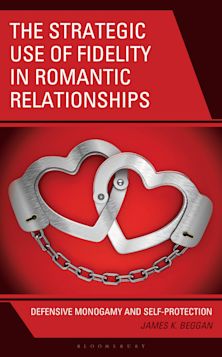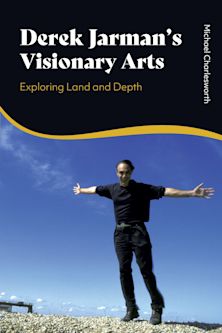Neuropsychosocial Integration
A Practical Approach to Discharging Trauma and Recovering the Authentic Self
- Textbook
Neuropsychosocial Integration
A Practical Approach to Discharging Trauma and Recovering the Authentic Self
- Textbook
- Delivery and returns info
-
Free CA delivery on orders $40 or over
Description
Neuropsychosocial Integration: A Practical Approach to Discharging Trauma and Recovering the Authentic Self explores the incidence of psychosocial trauma in ordinary life as it persists across generations. For those who have been exposed in some way to adverse lived experiences and/or protracted psychosocial stress, a manifestation of psychosocial trauma is disintegration in the self and in between the body and mind. Integration can be recovered, along with authenticity in the self and well-being in the body and mind, through the toolkit the author presents in the form of the acronym and metaphoric quiverful of SPEARS: Somato-Psycho-Emotional Attunement and Relational Safety. Featuring case studies, this book holds a specific appeal for graduate-student trauma researchers, therapists, and clinicians, as well as lay individuals exploring their own traumas.
Table of Contents
Preface:Authorship and Research Underpinning
Acknowledgments
Part I: Neuropsychosocial Integration in Research
Chapter One:Introduction to Neuropsychosocial Integration
The Neuropsychosocial of Our Native Need
Adverse Lived Experiences in Context
Structure of the Neuropsychosocial
Part II: Neuropsychosocial (Dis)Integration in Context
Chapter Two:Neuropsychosocial (Dis)Integration in Perspective
Neuropsychosocial (Dis)Integration in the Dance of Life
Selfhood in Neuropsychosocial (Dis)Integration: Native SPEARS
Chapter Three:Neuropsychosocial (Dis)Integration in the (In)Authentic Self
Resilience in the Authentic Self: Resilience SPEARS
The Authentic Self in Concept and Context
Authenticity as a State of Self-Possession
Automaticity in the (In)Authentic Self
Chapter Four:Neuropsychosocial (Dis)Integration in the Dynamic Self
The Self as Host of Life Stories: Survival and Pathological
The Developing Self in the Absence of Pathology
The Functioning Self in a State of Pathology
The Protective Self Neurodynamics and Intelligence SPEARS
Metaphorical SPEARS for Neuropsychosocial Acrobatics
Chapter Five: Neuropsychosocial (Dis)Integration: Featuring Psychosocial Trauma
Automaticity in Neuropsychosocial Disintegration
Disintegration in the Psyche and Soma
Socioemotionality in Neuropsychosocial Disintegration
Psychosocial Trauma in High Definition
Part III: Neuropsychosocial (Dis)Integration in Ancestry
Chapter Six:Ances-Story in Neuropsychosocial (Dis)Integration
Transgenerational Trauma in Context
The Neurobiological of Transgenerational Trauma
Chapter Seven: Psychosocial Trauma as Legacy: Beginning in Early Life
The Neuropsychosocial of Transgenerational Trauma
Social History of Psychosocial Stress: Beginning in Utero
Psychosocial Stress in Adaptive Defenses and Personality
Spectrum of Autonomic Activation in Adaptive Defenses
Chapter Eight: Psychosocial Trauma across Generations: In Practice
Psychosocial Trauma in Intergenerational Family Life
Legacy of Transgenerational Trauma in Destiny
Transgenerational Neuropsychosocial Disintegration
Part IV: Neuropsychosocial Integration in Process
Chapter Nine:Neuropsychosocial Integration: Structures, Resources, and Processes
Neuropsychosocial Integration Essential Structures
Neuropsychosocial Integration Essential Resources
Neuropsychosocial Integration Fundamental Processes
Chapter Ten:Neuropsychosocial Integration: Aims and Steps
Centering Authenticity in Neuropsychosocial Integration
Essential Aims and Steps in Neuropsychosocial Integration
Centering the Survivor for Neuropsychosocial Integration
Chapter Eleven: Neuropsychosocial Integration: Stages and Considerations
Neuropsychosocial Integration Core Stages
Neuropsychosocial Integration Core Considerations
Part V: Neuropsychosocial Integration in Therapy
Chapter Twelve:Neurorelational Integration
Neurorelational Well-Being
Neurorelational SPEAR
Neurorelational Therapy in Reflection
Chapter Thirteen: Neuro-Emotional Integration
Neuro-emotional Well-Being
Neuro-emotional SPEAR
Neuro-emotional Therapy in Reflection
Chapter Fourteen: Neuropsychological Integration
Neuropsychological Well-Being
Neuropsychological SPEAR
Neuropsychological Therapy in Reflection
Chapter Fifteen: Neurosomatic Integration
Neurosomatic Well-Being
Neurosomatic SPEAR
Neurosomatic Therapy in Reflection
Part VI: Embracing Neuropsychosocial Integration in Well-Being
Chapter Sixteen:A Survivor's Guide to Neuropsychosocial Integration
Neuropsychosocial Integration as Purpose
Neuropsychosocial Integration: A Clinical Approach
Journaling Our Integration and Authentic Self-Discovery
Chapter Seventeen:Beyond Psychosocial Trauma and Disintegration
Posttraumatic Growth
Transgenerational Resilience
Afterword: Neuropsychosocial Integration in Reflection
References
Index
About the Author
Product details
| Published | Nov 15 2024 |
|---|---|
| Format | Paperback |
| Edition | 1st |
| Extent | 294 |
| ISBN | 9781538195857 |
| Imprint | Rowman & Littlefield |
| Illustrations | 19 BW Illustrations, 2 Tables |
| Dimensions | 229 x 152 mm |
| Publisher | Bloomsbury Publishing |


































